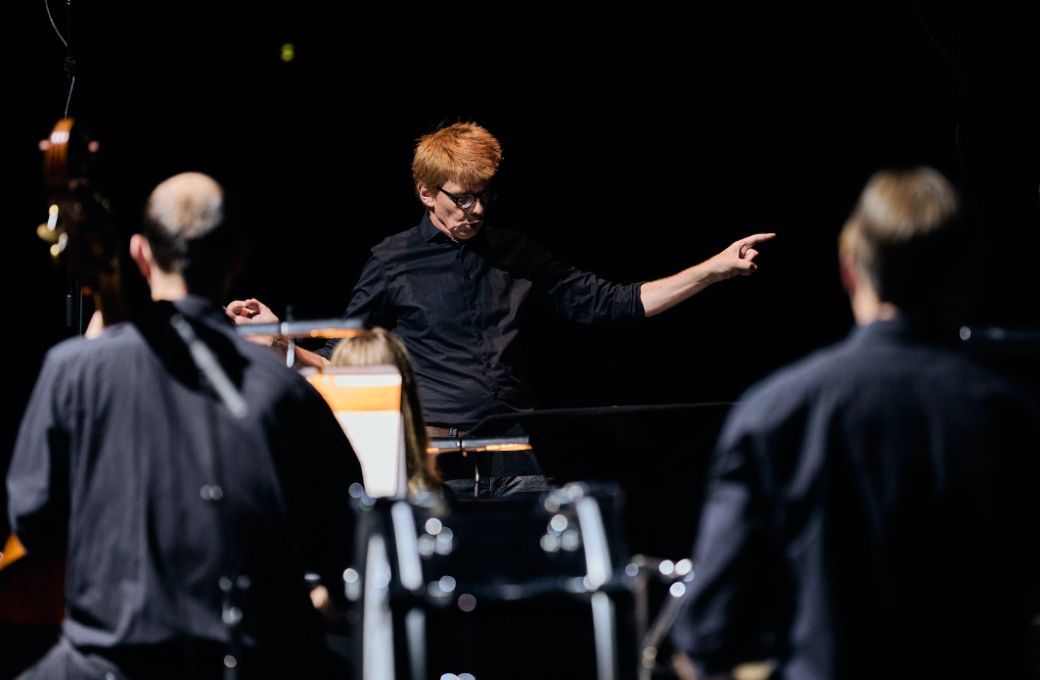A multi-faceted, almost all-encompassing curiosity about sound and its potential. Such might be the answer, if one was asked to pinpoint the focus of the double-feature concert which marked the third night of this year’s Musikfest Berlin. Centred around orchestral music and spanning three busy weeks, the Musikfest is set to offer its audiences a programme not to be missed, wide-ranging in both repertoire and performers. It was amidst this series of fortunate events that German composer Enno Poppe took the lead of Ensemble Modern, an old and close acquaintance, to perform Arnulf Herrmann’s freshly-premiered Hard-Boiled Variations and one of his own latest works, titled Körper. Together, the two pieces painted the captivating picture of a type of contemporary music which values composition as the starting point of a performance to be experienced, and not just as a score to be read.

Nonetheless, it would be misleading to talk of a shared style, or even purpose. Although both were written for variegated, mid- to big-size ensembles, similarities between the Variations and Körper end with their common interest in perception as a crucial aspect of music-making; they instead differ in form and aims, approaching the problem from distinctly different angles.
Merging music and dance, Herrmann’s Variations reflect on time and movement, consistency and change, order and chaos. Based on a simple notion – the progressive acceleration of each new variation – the piece begins with a slow, purposefully slack exposition of the ‘theme’, whose beginning is signalled by a basic yet characteristic percussive element. As the variations unfold, a sense of growing entropy ensues, but with it also comes a new perception of the theme itself: different speeds reveal melodic, harmonic and rhythmic details that were lost before and will maybe get lost again once the tempo grows faster. In his own words, Herrmann likes to compare the work to a painting that the audience is first presented with at a very short distance; with each variation the distance is increased, the outlines standing out more clearly until they too become remote and unrecognisable.
Undoubtedly, the joint performance of the Ensemble Modern and the CocoonDance company well conveyed the lucidity of Hermann’s piece, so firm and unyielding yet breakneck. Skilfully regulating the pace of each variation, Poppe plunged the score into increasing frenzy, all the while maintaining tight control over dynamic balances within the ensemble. In the meantime, the dancers took up the stage and mingled with the musicians. Such coexistence jeopardised the common idea of choreography as engendered by music; instead, the exchange was mutually influential and prolific.
Moving into the second half of the concert, the dancers left the stage to make room for the large ensemble for which Körper is scored. While owing much of its formation to big bands, Poppe’s piece only vaguely recalls jazz sonorities. Three different drum sets, an ample brass section and a fully electric string section contributed the most to shape the work’s distinctive sound. Having so diverse and versatile a palette, Poppe showed an unwavering interest in exploring its possibilities. Indeed, the ensemble behaved and sounded like a body, responding to the conductor’s gestures with a full range of hums, sighs, whispers, groans, rumbles and shouts. The subtle eclecticism of the score was thus functional to a wider investigation on different combinations of sounds, underscored by an ever-present rhythmic pulse.
Perhaps predictably in the case of a composer conducting his own piece with the ensemble he wrote it for, the congeniality between the two was easily apparent; and while this didn’t fully make up for the somewhat lengthy quality of the composition, it certainly gave the audience the chance to listen to a good performance.


